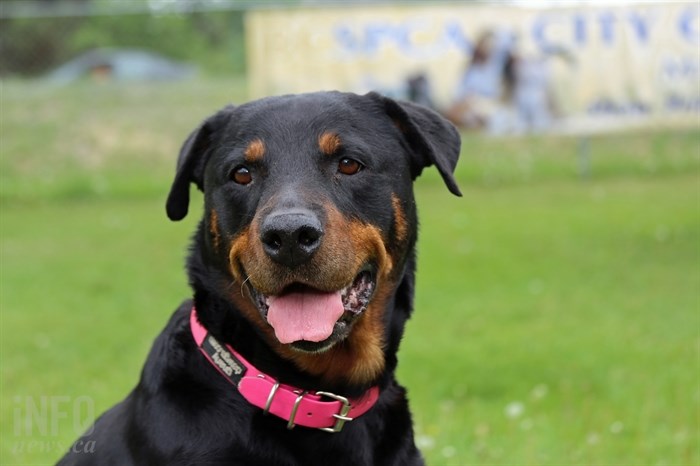
(JENNIFER STAHN / iNFOnews.ca)
December 11, 2015 - 8:00 PM
VERNON - There’s a wide range of standards among rescue groups across the province, and while animals are directly involved, that doesn’t mean the SPCA has a hand in how they operate.
Aspects of dog rescuing such as fostering and adoption procedures, holding periods, and vet-checks simply aren’t something the SPCA has a mechanism to oversee, spokesperson Lorie Chortyk says.
“Our only enforcement power is intervening if animals are in critical distress,” she says.
If the SPCA receives a cruelty complaint and learns an animal is being denied food, water, shelter or needed vet care, it can step in.
“In a rescue situation, normally it’s a case where there’s too many animals and not enough resources,” Chortyk says. “Often, people start animal rescues and have big hearts, but become overwhelmed by the number of animals.”
In the case of a controversial Vernon rescue called Saving Grace, three cruelty complaints were made in 2015, but none were substantiated.
“Each time there was nothing we could find that would indicate animals being in distress,” Chortyk says.
The SPCA partners with roughly 60 ‘approved’ rescue groups across the province which are required to meet a number of expectations for animal welfare to maintain that approval.
“Our philosophy is the more people helping animals the better,” Chortyk says.
To partner with the SPCA as an approved rescue, groups must fill out an application and go through a screening process. In the Okanagan, one SPCA approved rescue is Sit Pretty Pit Rescue Society. Vice-president Leah Gilmour says they launched in 2013 with a mission of rescuing and rehoming pit bulls specifically.
At Sit Pretty Pit, all dogs are kept in the rescue’s care for a minimum of one month, which provides time to ensure vetting is up to date and to assess the dog’s behaviour and temperament. Fosters, who are approved only after an interview and home check, play a big role observing the dog’s behaviour and preparing it for a forever home.
“We’re very careful about pairing the right dog to the right home. We try to be good match-makers to ensure it’s a successful experience for the dog and the foster home,” Gilmour says. “We try to minimize the stress of the dog as much as we can.”
The adoption process also involves an interview and home check, as well as meetings with the foster to interact with the dog and learn if it will be a good fit.
“We don’t do trial (adoptions) because we wanted adopters to be very serious in their consideration of taking the dog home. We try not to get the dogs bumped around too much, or give people the impression they can take the dog for a test run,” Gilmour says. “We try our best to screen folks and are completely upfront about the dog and what they need going forward. There can be some tough stuff to tackle integrating a rescue dog into your home rather than a puppy.”
Some adopters do get rejected, or put on hold if the rescue doesn’t have a suitable dog for them at the time. When an adoption is finalized, all the dog’s health records are transferred to the new owner’s vet within days.
The rescue adopted out 53 dogs in its first two years, and Gilmour says the feeling of pairing a dog up with a forever home is ‘indescribable.’ Rescue dogs can take a lot of work, but they make incredible companions.
If you’re interested in adopting a rescue dog, Gilmour suggests doing your homework to find a reputable dog rescue. She recommends reading this guide about what to look for in a rescue, and to call agencies like the local SPCA branch or dog control for recommendations.
“Any good dog rescue will be known to the other shelters in the area who can get a good read on that rescue’s policies and reputation in the community,” Gilmour says.
To contact the reporter for this story, email Charlotte Helston at chelston@infonews.ca or call 250-309-5230. To contact the editor, email mjones@infonews.ca or call 250-718-2724.
News from © iNFOnews, 2015